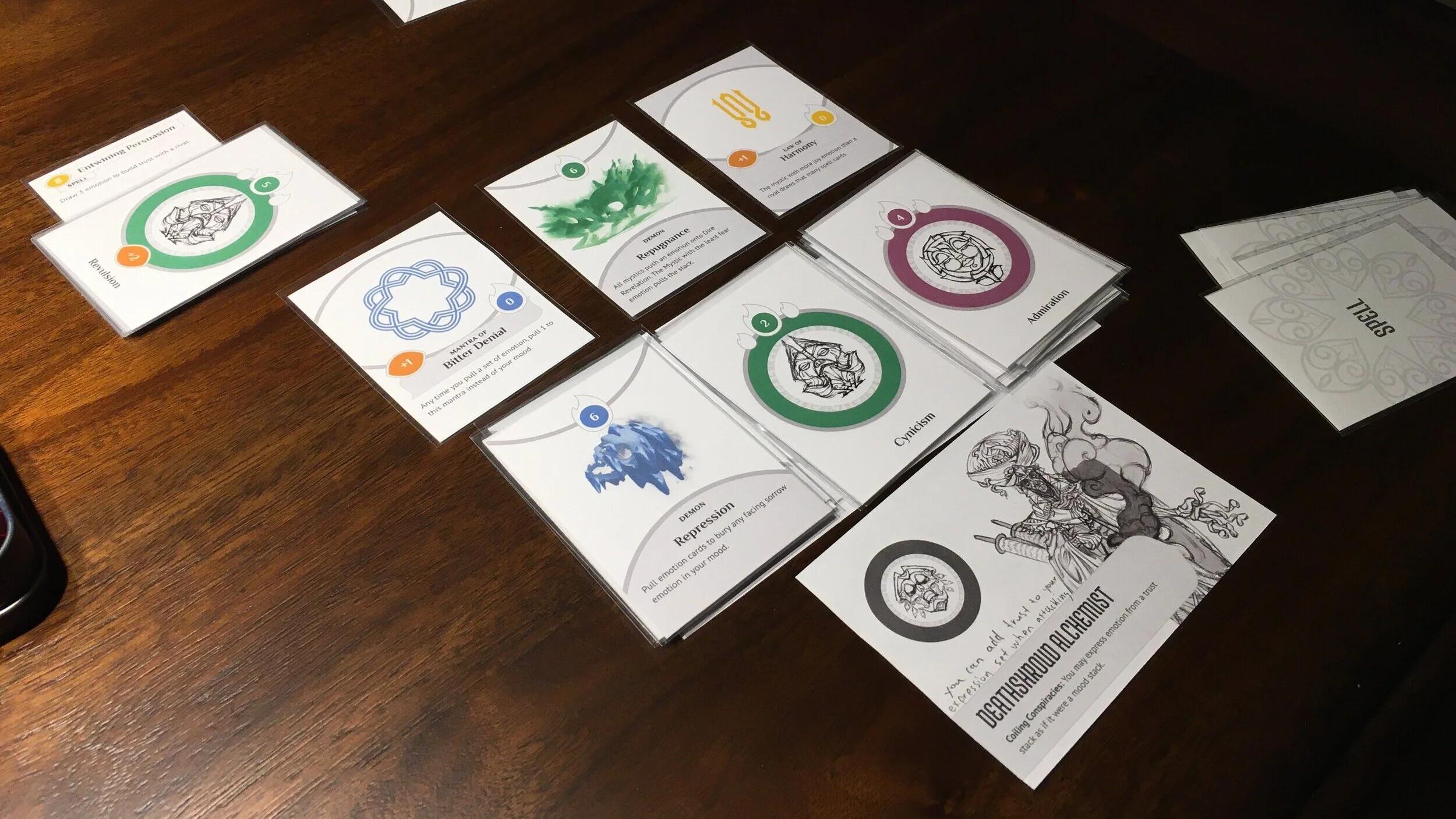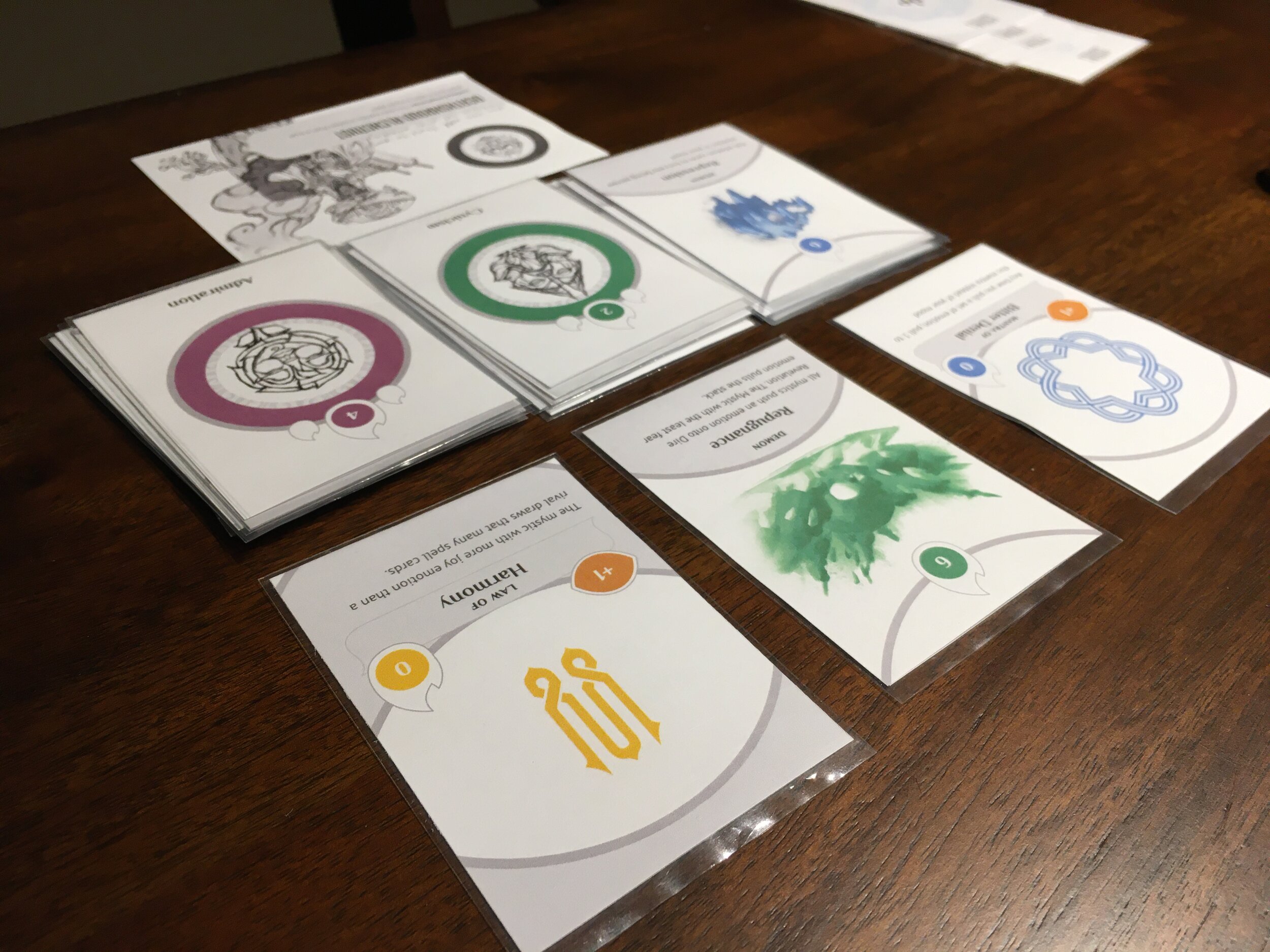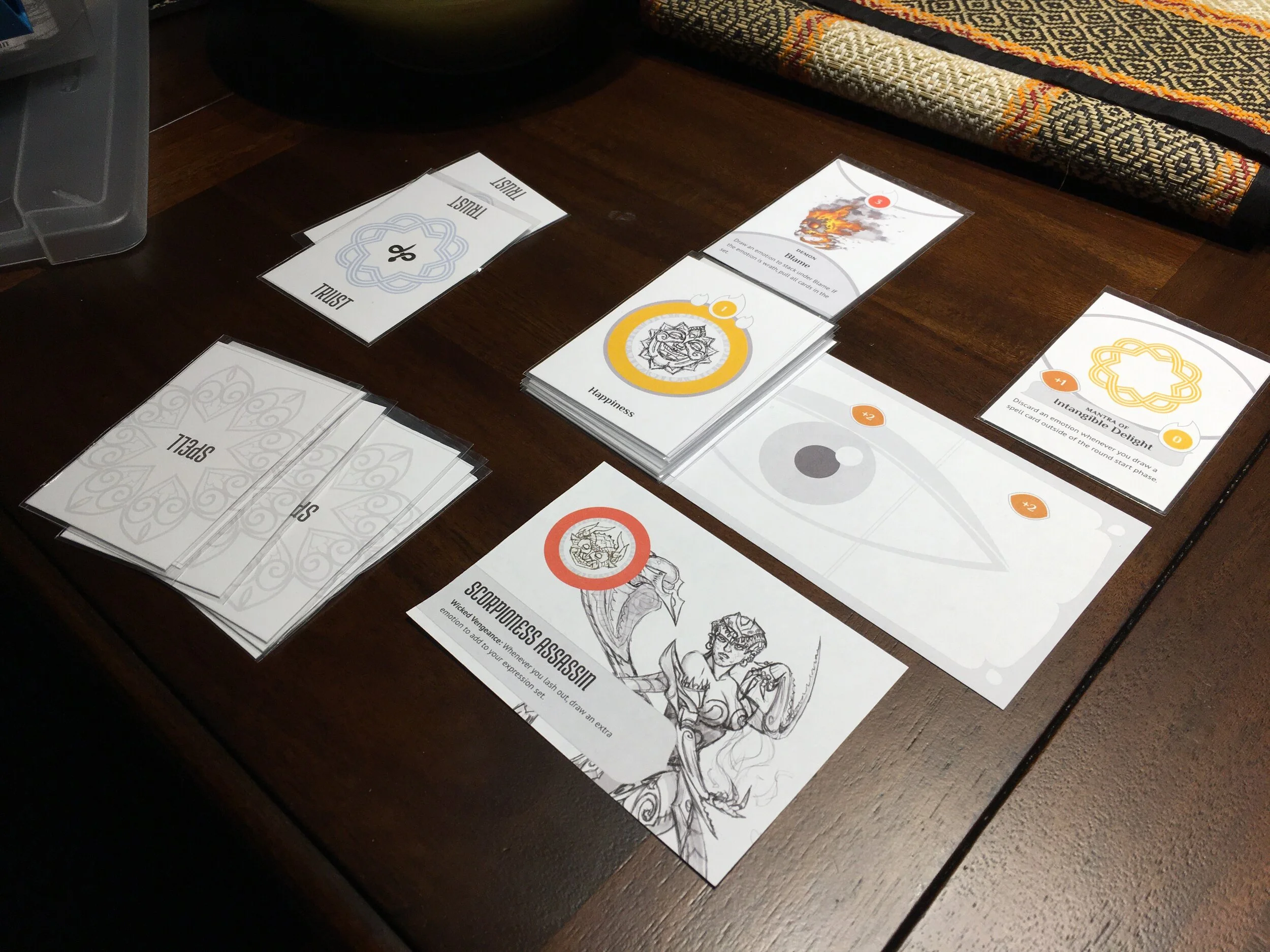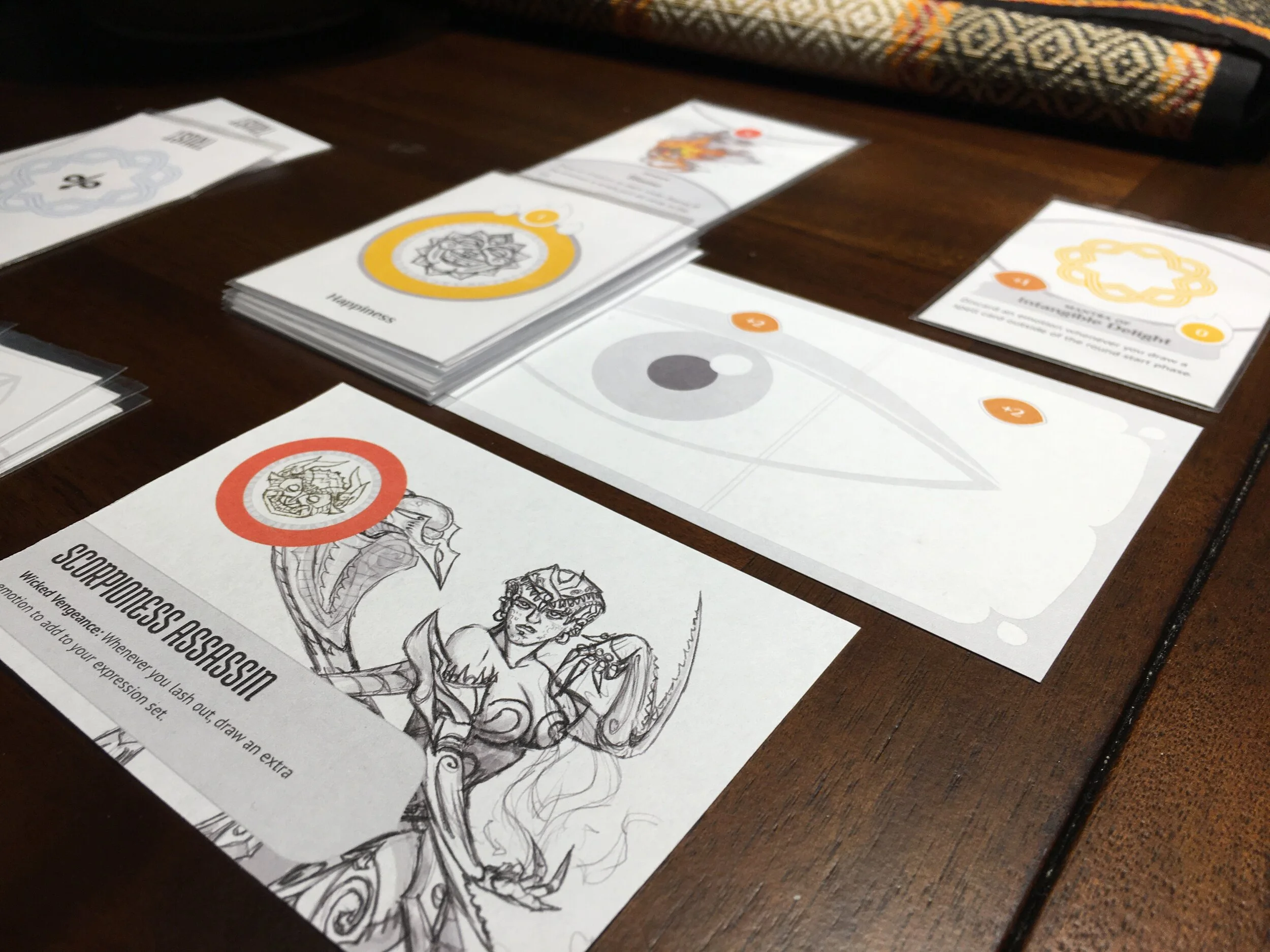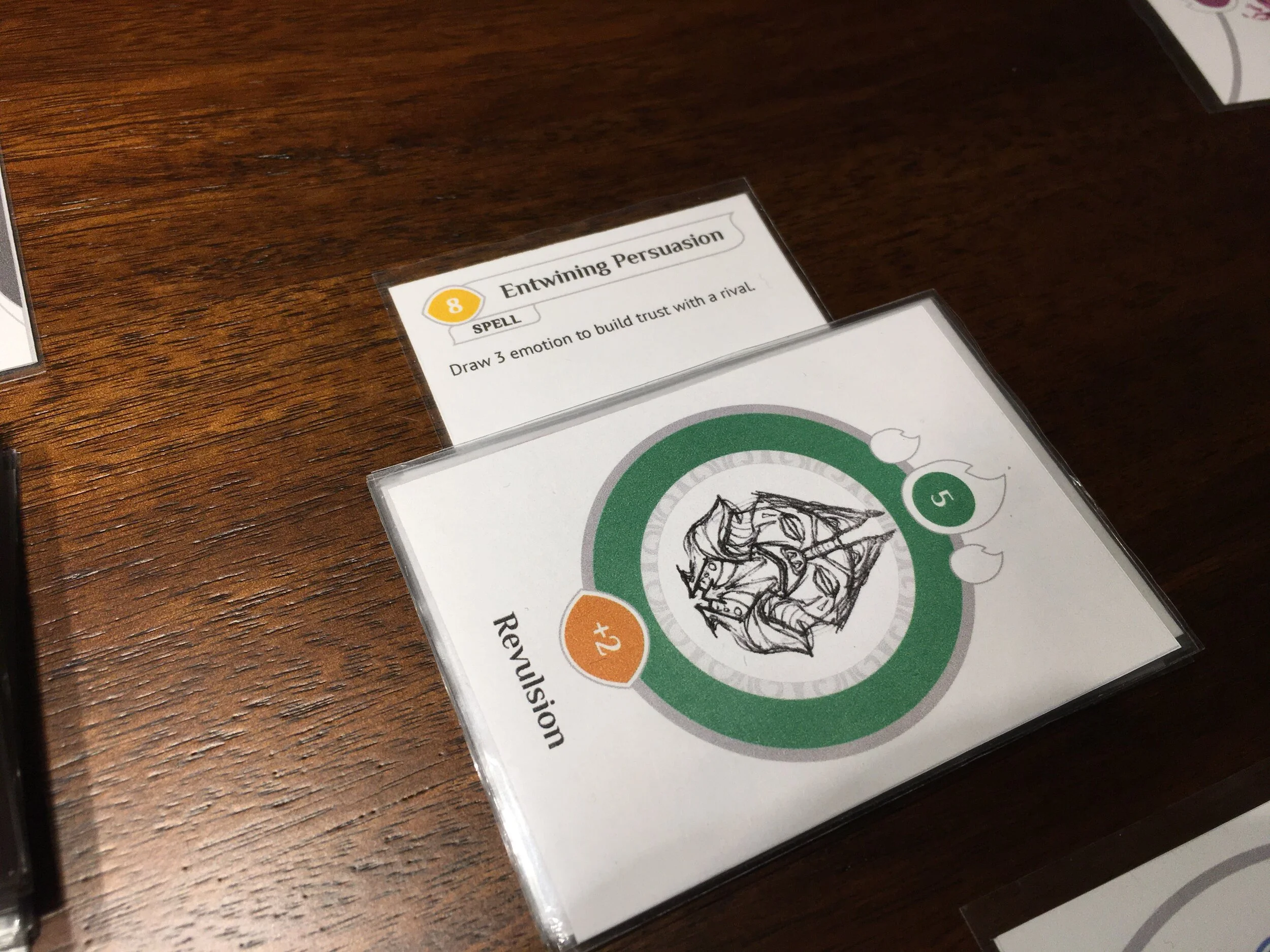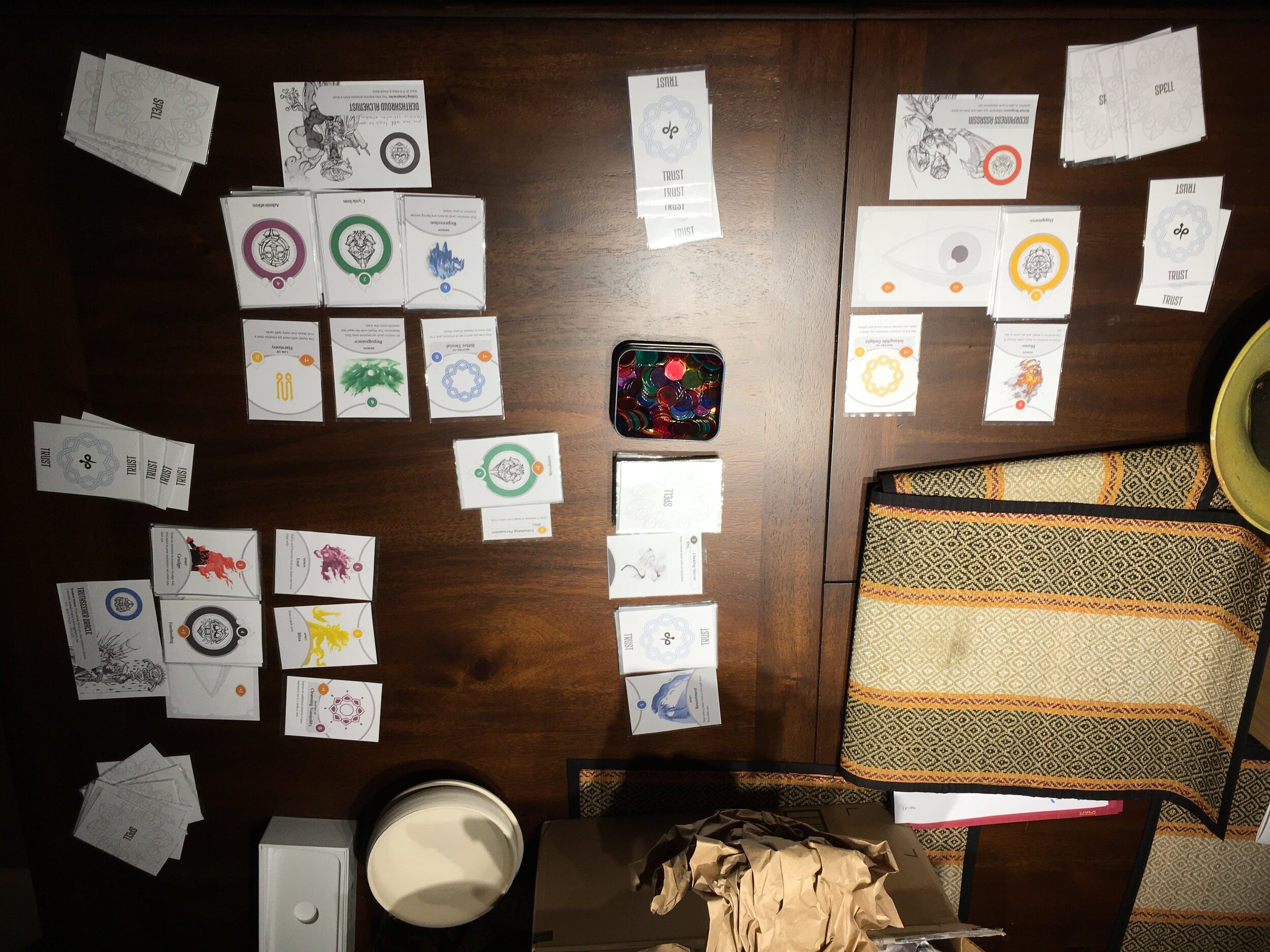Inner Path Update – Grand Vizier
Going back to full sized emotion cards, they now fit neatly in their own ‘mood bar’, separate from a player’s ‘ego’.
After completing another group playtest the foundation seems to be holding, with peripheral elements requiring the most tweaking. Lots of great ideas at the table, and a willingness to see things through kept motivation up even amongst the confusion. I think that by simplifying a bunch of the special rules and cards to be more in-line with predictable formats, I can create a better sense of order.
What was problematic
Need for more control/predictable elements for Strategist players
Unusual workflows create a lot of unnecessary confusion
Adding any sequential actions beyond that of a player’s turn confuses them
Terminology: Inconsistent terminology makes things very confusing.
Having too similar of terminology causes confusion as to which is being affected: i.e. focus tokens being used to increase one’s focus level.
Too many special emotions. After things reach a critical capacity, some special emotions (like mantras) just start to get ignored.
Laws became messy when either trying to resolve in a group round, or individually with potentially multiple laws triggering
Demons/spirits ‘releasing’ became a fun way to break out special rules progressively throughout the game. The actual order of operations in a group sub-round made things very confusing
Pairing low-focus spells with powerful effects dissipated the tension between the two.
Mantras: Complicated, hard to remember, especially when there are many of them.
Not everyone understood the necessity of trust stacks. Became especially relevant if a player focuses on releasing maximum emotion and busting, not having to make that choice.
Players showed an instinct to play out a spell as soon as it left their hand, rather than powering it up first with emotion.
Resolving spirits, demons, and especially laws out of a common turn-based sequence cause more confusion that it solved.
What worked well
Hard to get players to scratch the game and start over to try something new, since they wanted to keep playing and see how things turned out. Taking this as a good sign!
Actually finished a game!
Collecting focus tokens based on special emotion cards on one’s mood composition kept a steady flow of the resource
Demons building stacked cards became a fun mini-game of hot-potato or the tense ticking time-bomb
Using spells and passive abilities to manipulate an enemy’s mood composition provided an extra layer of strategizing.
The meditation blackjack minigame, which in need of improvement, served decently as a tantalizing game of greed as intended
New full-sized cards made reading of special emotions more seamless
Core game mechanics flowed smoothly, releasing emotions became a proper driving force. Trust cards, although their purpose not fully understood, acting well as a defensive screen for late-game alliances.
Fixes
Grand Vizier: The player who keeps the title (represented as a crown token) starts each round, and chooses which universal law to enact for all the players.
Laws: Formerly a global effect that triggers based on a player’s mood composition when revealed through an emotion stack. Now it will live in its own stack, with players vying to put the ones in that benefit them most.
Mantras: Now there will be a dedicated slot on the character card for them, effectively creating a stack so only one will be present at a time.
Focus tokens -> Will tokens: By broadening its scope to be used to purchase other abilities, it becomes a more valuable resource with more varied decision points
Demons/Spirits: Now are released on each player’s turn. Debating whether to put in a single slot like mantras for simplicity, or to keep them as free-roaming so that each can build into its own stack
Spell Structure: Pairing high focus spells with powerful effects will create some much-needed tension when releasing emotion from a mood, so that if they bust they not only lose the spell stack but also fail in their spell casting.
Spell Power thresholds: Adding a few levels in spell where they become increasingly more potent will encourage building up emotion before casting, and might help introduce a special ability of storing emotion cards for the perfect occasion.
Character ego reformatted, players expressed interest in powerful passive abilities.
Casting a spell process can be simplified, but overall positive feedback.
Some insights from all the chaos!
Potential Ideas
Some ability to empower spells with a predictable modifier
An ability to draw emotion or other modifiers to your hand to really mix things up. Maybe trust stacks can fulfil this purpose?
Cast spells directly from your hand, then meditate to express emotion as a separate action? Maybe even not in any particular sequence?

